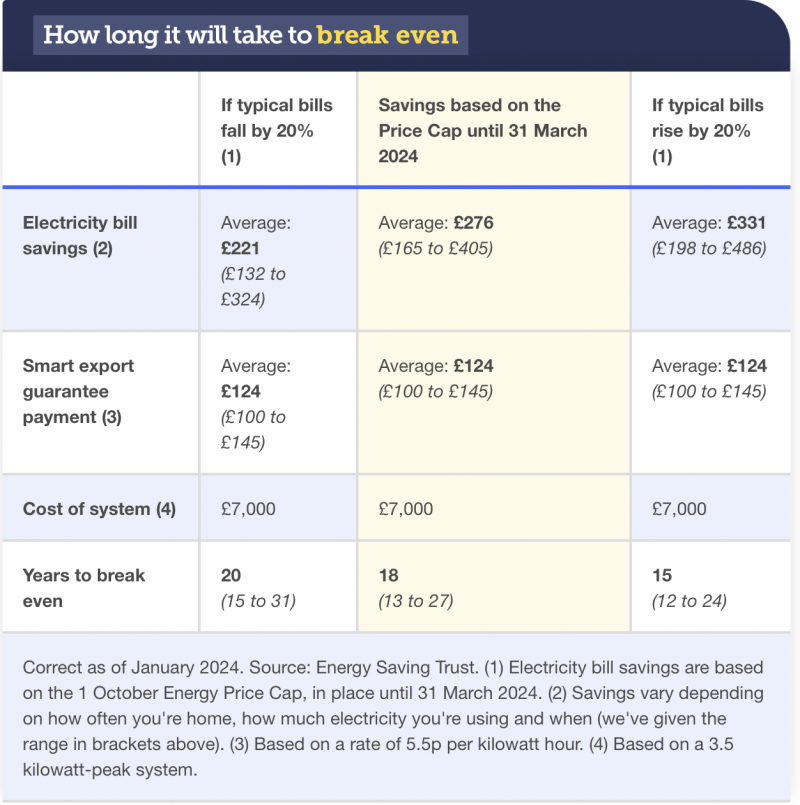Solar panels are becoming more popular in the UK, so let’s talk about them!
A Quick Overview of Solar Panels
Solar panels capture the sun’s energy and convert it into electricity so that you can power your home.
The two main types of solar panels in the UK are monocrystalline panels (20% more expensive but more efficient) and polycrystalline panels (cheaper but 1/3 less efficient).
Increasing Popularity
The Eco Expert’s National Home Energy Survey 2023, which surveyed 2,134 adults in Britain found that 69% of respondents would be ‘likely’ or ‘very likely’ to buy a property if it had solar panels. This acts as a 4% rise from last year, meaning domestic solar panels are becoming more popular among Brits.
However, to say that you would be likely to buy a property with pre-existing solar panels is not the same as going out of your way to instal them yourself, and fronting the cost, on your existing property.
Registering your Solar Panels
You may have to register your energy device with the government, which you can do by clicking here.
You should find out whether you are required to register your energy device before or after installation with the Distribution Network Operator (DNO). Follow this link to enter your postcode on the Electricity Network’s Association’s Website to determine your relevant DNO).
The Cost of Solar Panels
The average domestic solar PV system is 3.5kWp and costs £7,000, which would take you 15-20 years to recoup the costs of installing panels through your energy savings.

The above table, taken from Money Saving Expert, shows the different break even estimates for a 3.5kWp system if typical bills rise or fall.
You can also get 3kW solar panel systems which cost around £9,000-£10,000, which GreenMatch say you could break even with within 12 years.
Advantages
Solar panels are a source of renewable energy, making them more environmentally friendly than the burning of fossil fuels (which release carbon dioxide into the atmosphere) to generate power.
Solar panels also help to reduce your energy bill, leading to long term savings.
If your home is entirely reliant on solar power, you can function off-grid. If you have a solar battery system, this can turn your solar system into an emergency backup power source during power outages.
If you have solar panels, you can take advantage of a process called net metering, which allows you to sell excess electricity in your panels back to the utility company, helping to further reduce your energy bill.
Disadvantages
Solar panels are sunlight dependent, meaning if you get little sun, you won’t generate as much energy.
One of the biggest drawbacks of solar panels is the initial cost of installation, as you won’t start to ‘make your money back’ for a long time.
This is particularly important to consider if you may move homes within the next 10 years or so, as removing and reinstalling solar panels from your current property to a new one would prove even more costly.
Although solar panels are a form of renewable energy, they do still have an environmental impact in terms of their manufacturing.
However, as stated by The Office of Energy Efficiency & Renewable Energy, “just as we say that it takes money to make money, it also takes energy to save energy. The term “energy payback” captures this idea […] With energy paybacks of 1 to 4 years and assumed life expectancies of 30 years, 87% to 97% of the energy that PV systems generate won’t be plagued by pollution, green-house gases, and depletion of resources.”
Are Solar Panels Right for Me?
Aside from weighing up the advantages and disadvantages discussed above, you should also consider the actual logistics of installing solar panels.
A key thing to bear in mind with solar panels is space, as the average size solar panel system will take up around 20m² of roof space.
You also need to consider whether your roof mainly sits in the shade or whether it gets a lot of sunlight – does it get shaded by nearby trees and buildings?
South facing roofs are ideal for solar panels as these tend to get the most sunlight. East and West facing systems can also have solar panels installed on them, but they yield around 15-20% less energy than ones directly facing South. North facing roofs are not recommended.